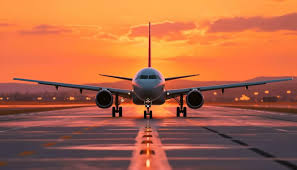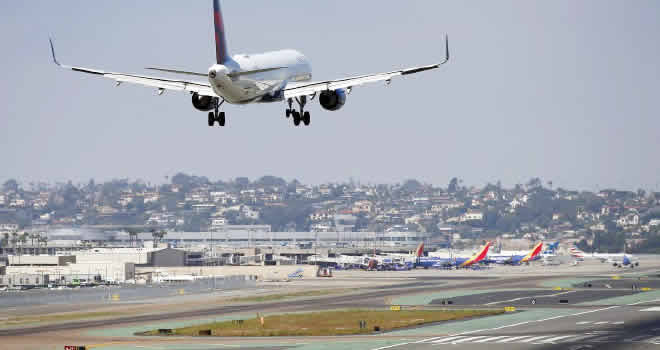NCAA: Airline operators recorded 1,320 cancelled flights, 38,061 delays in 2024
In 2024, Nigeria’s aviation sector faced significant operational challenges, with domestic airlines recording 1,320 flight cancellations and 38,061 delays. These figures, provided by the Nigerian Civil Aviation Authority (NCAA), highlight the pressing issues affecting the country’s air travel industry. This article delves into the underlying causes, the impact on passengers and the economy, regulatory responses, and potential strategies for improvement.
Extent of Flight Disruptions
The NCAA’s data reveals a troubling trend in flight operations throughout 2024. Specifically, during September and October, out of 10,804 flights operated, there were 5,225 delays and 901 cancellations, accounting for 48.3% and 8.3% of the total flights, respectively. This pattern suggests that nearly half of all flights during these months were delayed, and a significant portion was canceled, indicating systemic issues within the aviation sector.

Root Causes of Delays and Cancellations
Several factors contribute to the high incidence of flight delays and cancellations in Nigeria:
Weather Conditions: Adverse weather, particularly during the harmattan season, often leads to poor visibility, making it unsafe for flights to operate. The NCAA has acknowledged that such conditions are sometimes unavoidable.
Operational Challenges: Airlines frequently face issues related to aircraft maintenance, scheduling inefficiencies, and crew availability. The Acting Director-General of the NCAA, Chris Najomo, emphasized the importance of airlines planning for Actual Off-Block Time (AOT) to mitigate operational disruptions.

Technical Problems: Aging aircraft and inadequate maintenance can lead to unforeseen technical issues, necessitating flight delays or cancellations to ensure passenger safety.
Infrastructure Limitations: Inadequate airport facilities, including limited runways and outdated air traffic control systems, can contribute to delays, especially during peak travel periods.
Impact on Passengers and the Economy
The repercussions of flight disruptions extend beyond mere inconvenience:
Passenger Dissatisfaction: Frequent delays and cancellations erode trust in the aviation system, leading to frustration and decreased customer loyalty.
Financial Losses: Passengers may incur additional expenses for accommodation, meals, and alternative transportation. Businesses relying on air travel for operations can also suffer financial setbacks due to disrupted schedules.
Economic Implications: The aviation industry plays a crucial role in economic development. Persistent operational issues can deter investment, affect tourism, and hinder overall economic growth.
Regulatory and Stakeholder Responses
In response to the escalating issues, the NCAA convened a stakeholders’ meeting in December 2024, involving airline operators and the Federal Airports Authority of Nigeria (FAAN). Key points from the meeting include:
Airline Accountability: The NCAA reminded airlines of their obligations under the Nigeria Civil Aviation (Consumer Protection) Regulations, 2023, emphasizing the need for prompt communication with passengers regarding flight status and the provision of necessary compensation during
Operational Adjustments: Suggestions were made for airlines to trim their schedules and have standby aircraft to mitigate delays. This approach aims to enhance operational flexibility and reduce the cascading effects of unforeseen disruptions.
Passenger Conduct: FAAN’s Managing Director, Olubunmi Kuku, addressed concerns about unruly passenger behavior during disruptions, stating that such actions would not be tolerated and emphasizing the importance of maintaining decorum.
To address these challenges and enhance the reliability of Nigeria’s aviation sector, several strategies can be considered:
Investment in Infrastructure: Upgrading airport facilities and air traffic control systems can alleviate some operational bottlenecks that contribute to delays.
Enhanced Communication: Establishing robust communication channels between airlines, airport authorities, and passengers can ensure timely updates and reduce frustration during disruptions.
Fleet Modernization: Investing in newer, more reliable aircraft can reduce technical issues that lead to cancellations and delays.
Regulatory Enforcement: The NCAA should continue to monitor compliance with consumer protection regulations and impose sanctions where necessary to ensure airlines adhere to established standards.
Channels Television
Weather Forecasting and Planning: Collaborating with meteorological agencies to improve weather forecasting can aid in better flight planning and reduce weather-related disruptions.
Conclusion
The high number of flight cancellations and delays in Nigeria’s aviation sector during 2024 underscores the need for comprehensive reforms. Addressing the root causes through infrastructural investments, operational adjustments, and stringent regulatory oversight can enhance passenger confidence and contribute to the industry’s growth. Collaboration among stakeholders, including airlines, regulatory bodies, and passengers, is essential to achieving a more reliable and efficient aviation system in Nigeria.

![Karol Nawrocki przygotowuje pakiet ustaw. Tak ma wyglądać nowa waloryzacja [TABELA]](https://sportdomain.com.ng/wp-content/uploads/2025/07/IMG_8291-768x768.jpeg)




